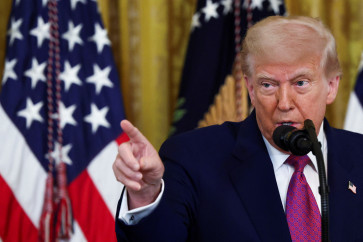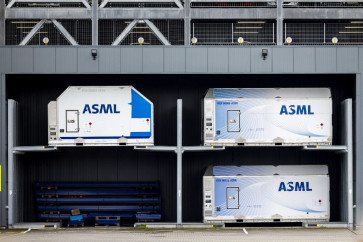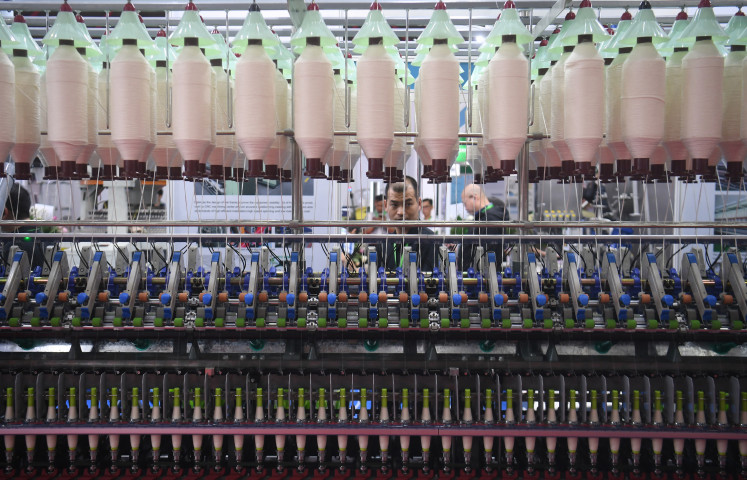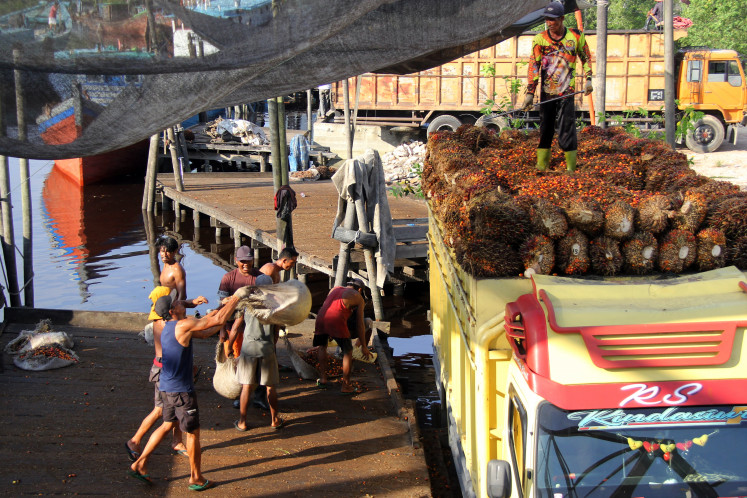Popular Reads
Top Results
Can't find what you're looking for?
View all search resultsPopular Reads
Top Results
Can't find what you're looking for?
View all search resultsEffectiveness of concealing cigarettes in stores in doubt
The Depok administration’s latest tobacco-control efforts telling modern retailers to conceal all tobacco displays and advertisements in their business places has been criticized as a mere cosmetic policy, as it will have little to no effect on curbing tobacco consumption among residents
Change text size
Gift Premium Articles
to Anyone
T
he Depok administration’s latest tobacco-control efforts telling modern retailers to conceal all tobacco displays and advertisements in their business places has been criticized as a mere cosmetic policy, as it will have little to no effect on curbing tobacco consumption among residents.
On Sept. 19, Depok Mayor Mohammad Idris issued a circular instructing modern retailers to conceal their cigarette rack, a policy that is actually stated in City Decree No. 3/2014 on smoke-free zones. Article 13 of the decree states that clear displays of tobacco products sold by any individuals or business entities is prohibited.
Upon learning about the circular, many convenience stores put up curtains to cover the dozens of cigarette packs behind the counter. Above the rack, many have put up handwritten signs stating “cigarettes available here”.
Ardi Gunawan, head store assistant of a convenience store in the West Java city, told The Jakarta Post recently that despite concealing its cigarette rack, the store had not yet seen a decrease in cigarette sales.
“No change [in cigarette sales]. Customers ask for their own brand preferences first,” he said.
Along, 40, a smoker who had just bought a cigarette pack in another convenience store on Jl. Margonda Raya, told the Post that such a policy would not prevent smokers from buying cigarettes.
“It will not affect [smokers]. The [cigarette sales of] modern retailers might be affected,” she said, adding that smokers might switch to buying cigarettes at small kiosks that were not affected by the policy, as it was too much hassle buying them from modern retailers.
“It might also be ineffective if [the authorities] want to prevent children from buying cigarette. Smoking is a personal preference,” the 40-year-old laundry worker said, adding that some of her friends had tried cigarettes when they were children, but never continued smoking afterward.
Depok is not the first region to enforce such a policy. Another West Java city, Bogor, applied the same rule in October last year.
In a 2017 survey conducted by No Tobacco Community (NOTC), an NGO involved in formulating the policy in both West Java cities, 60.2 percent of the 269 modern retailers surveyed said the policy had not affected cigarette sales.
The Depok authorities and NOTC inspected 105 of the city’s 374 stores on Oct. 22-23. The NGO recorded that 22.9 percent, or 24 retailers, had complied with the policy. However, violators have yet to be punished, as it is only a month since the circular was issued.
With the low level of compliance, NOTC chairman Bambang Priyono suggested that the administration establish periodic monitoring and evaluation, as well as impose punishments on retailers in accordance with the decree on smoke-free zones.
The decree stipulates that business entities that violate the rule will face a maximum of three months’ imprisonment or a fine of Rp 50 million (US$3,367). Individuals will face a maximum of seven days’ imprisonment or a fine of Rp 1 million.
However, Depok Public Order Agency (Satpol PP) head, Yayan Ariyanto, said the agency would further discuss with the Depok Health Agency, NOTC and related institutions about the right time to enforce the punishment.
When asked about the implication for small kiosks or any individual sellers, Yayan said the authorities were focusing on modern retailers first.
“We will discuss it [expansion to small kiosks],” he added.
Saman, a kiosk attendant who sells cigarettes and a few snacks on Jl. Stasiun, Depok, said such a policy might be ineffective, as the warning pictures against smoking on cigarette packs, which he claimed to be the hardest approach, did not deter people from buying cigarettes.
Saman suggested that the authorities impose stricter punishments, especially on those allowing children to buy cigarettes.
“Even though I sell cigarettes, I never allow children to buy them from me,” he said. (sau)










